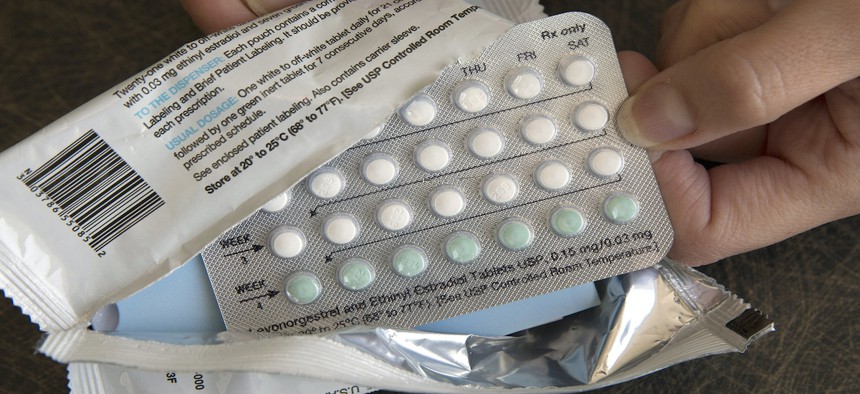Supreme Court Says Employers Can Deny Birth Control Coverage Due to Religious or Moral Objections

Between 70,000 and 126,000 women could lose access to birth control as a result of the ruling, according to government estimates. Associated Press

Connecting state and local government leaders
In a 7-2 decision, the court said the Affordable Care Act grants the federal government power to "identify and create exemptions from its own guidelines."
The U.S. Supreme Court on Wednesday upheld a Trump administration rule that allows employers with religious or moral objections to opt out of an Affordable Care Act mandate that guarantees free access to birth control.
As many as 126,000 women could lose access to contraceptives as a result of the 7 to 2 ruling, according to estimates from the federal government.
The decision was justified, Justice Clarence Thomas wrote for the majority, because the Affordable Care Act grants the federal Department of Health and Human Services “virtually unbridled discretion to decide what counts as preventive care and screenings,” a “grant of authority” that “leaves its discretion equally unchecked in other areas, including the ability to identify and create exemptions from its own guidelines.”
In their dissenting opinion, Justices Ruth Bader Ginsburg and Sonia Sotomayor wrote that the court has previously taken a “balanced approach” in its consideration of cases that deal with religious freedom, taking care to “not allow the religious beliefs of some to overwhelm the rights and interests of others who do not share those beliefs.”
“Today, for the first time, the court casts totally aside countervailing rights and interests in its zeal to secure religious rights to the nth degree,” leaving “women workers to fend for themselves” in finding and paying for access to birth control, they wrote.
The case considered new rules established by the Trump administration to widely expand the types of organizations that could opt out of the birth control mandate due to religious or moral objections. Houses of worship and their auxiliaries were originally exempt from the policy after Congress passed the Affordable Care Act in 2010, and a later ruling allowed some nonprofit employers with religious affiliations to opt out as well, provided they gave notice of their objection.
Four years later, the Supreme Court ruled in a case involving Hobby Lobby stores that a private, religiously oriented and “closely held” company could also legally abstain from providing coverage for contraceptives.
Wednesday’s decision affirmed the Trump administration’s rules, which allow publicly traded companies and large universities to refuse to provide coverage on the bases of either a religious or moral objection. That policy, first enacted in 2018, was challenged by lower courts and successfully blocked by both Pennsylvania and New Jersey, which prompted the administration, via a religious nonprofit, to ask the Supreme Court for a reversal.
Women’s groups and civil rights organizations condemned the ruling. In a tweet, Planned Parenthood President and CEO Alexis McGill Johnson said the organization would continue to fight for universal access to affordable contraceptive care.
“This is not over,” she said. “We will do everything we can to ensure those who need birth control and other sexual and reproductive health care can access it—no matter who you work for, where you go to school, how much money you make, or the color of your skin.”
The ACLU also slammed the decision, saying on Twitter that the foundation of the court’s opinion was faulty.
“We’ve said it before and we’ll say it again,” the organization said. “Religious liberty is not a license to discriminate.”
Kate Elizabeth Queram is a staff correspondent for Route Fifty and is based in Washington, D.C.

NEXT STORY: Nearly 3 in 4 Moms Were In the Workforce Before the Covid-19 Pandemic—Is That Changing?




